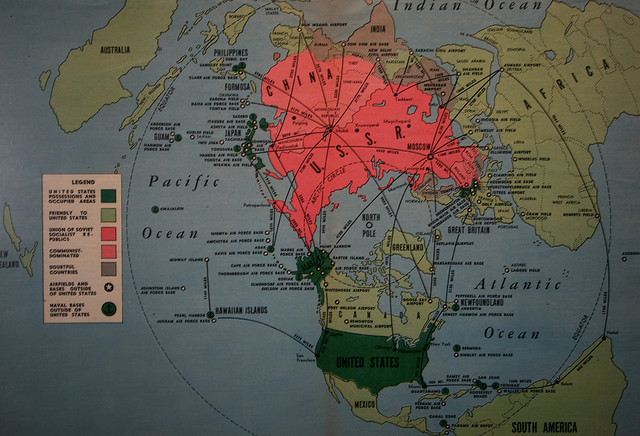US–China cyber relations: not a new Cold War
 Describing cyber activities by the US and China as a new Cold War in cyberspace is hyperbolic and inaccurate. The relationship between the US and China and the international environment for this relationship are very different from the Cold War, when relations and contacts with the Soviet Union were extremely limited and there was no economic interdependence or interconnection. There have been none of the threats, ideological challenges or proxy conflicts that characterised the Cold War.
Describing cyber activities by the US and China as a new Cold War in cyberspace is hyperbolic and inaccurate. The relationship between the US and China and the international environment for this relationship are very different from the Cold War, when relations and contacts with the Soviet Union were extremely limited and there was no economic interdependence or interconnection. There have been none of the threats, ideological challenges or proxy conflicts that characterised the Cold War.
The US has sought to avoid a military focus in its cybersecurity efforts. It has cast China’s cyber espionage as a commercial matter (Treasury Secretary Lew has told China’s President that cyberattacks are ‘a very serious threat to our economic interests’). For example, the US indictments of People’s Liberation Army officers for cyber espionage focused intentionally on trade and economic crimes to avoid any implication that this was a military contest.
China has never used ‘force’ (defined as acts of violence) against the US in cyberspace; it will use cyberattack against US military forces in any clash, but espionage isn’t war—if it were grounds for war, the US would find itself at war with many countries. Both China and the US have implicitly avoided truly damaging attacks or military confrontation in cyberspace, each restricting its activities to espionage. Espionage isn’t a crime under international law, and it’s not in the US interest to make it so. Dealing with China’s cyber espionage requires a sustained effort to construct norms and persuade China to observe them, to create consequences for Chinese actions, and to improve cyber defences in the interim. Read more



